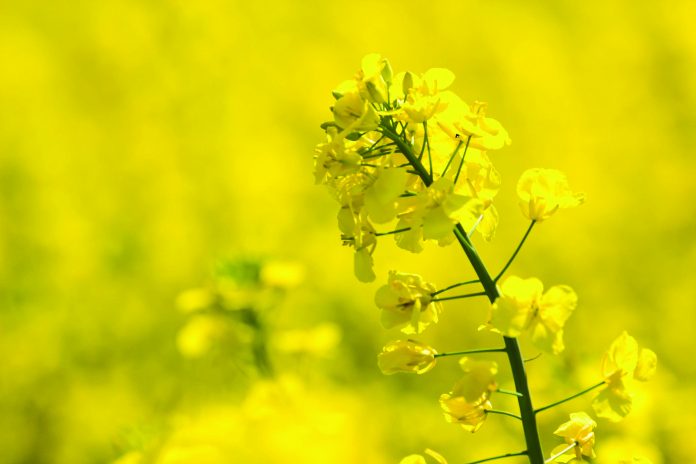Canola producers, including two Saskatchewan growers, appeared before the federal agriculture committee Tuesday to call on the federal government to do more to address its ongoing trade dispute with China.
Since China issued non-compliance orders on three major Canadian canola exporters, the price of canola has dropped significantly. With seeding around the corner, many growers are concerned about the status of one of their most profitable crops.
China has argued there are quality and pest concerns with Canadian exports. Canadian officials refute this, and many have suggested the move to block canola was made as retaliation to Canada’s decision to arrest a high-ranking Huawei official who is a Chinese national at the direction of the United States.
But it’s not just China that growers are concerned with. Over and over again, the committee heard from producers that the dispute with China already exacerbates issues seen in disagreements with Saudi Arabia, India and Italy impacting pulses and wheat.
“If canola was the only commodity we grew that was facing a trade barrier … we would be able to bunker down and take a few years of lower prices,” said Megz Reynolds, who farms on a family operation in southwest Sask.
“The frightening reality is almost ever crop being grown in Canada is dealing with one trade barrier or another.”
Reynolds said she stood beside a farmer at a local Co-op recently, and he was cancelling 160 acres of canola. If he wanted to keep his oilseed rotation it would be flax or mustard that would go down this year. But those crops are more niche markets, and the risk is those prices will suddenly drop as farmers scramble to find an alternative to canola to grow.
The producers who testified Tuesday all emphasized one point — that it’s incredibly difficult at this point in the year to think about changing what crop they plant. For some, seed has already been purchased, for as much as $500 or $600 per bag. Farmers also plant in a rotation, and canola is important to maintaining that rotation, which keeps the soil healthy.
For others, a difficult fall meant other seed crops are unavailable due to poor germination.
“It’s fine if one or two farmers change their decisions, but if the whole province all of sudden doesn’t want to grow canola, now there’s a shortage of … whatever else,” explained Mark Kaun, a third-generation farmer and authorized seed cleaner and grader.
“It’s really hard to change your rotations. If there’s no seed, you’re stuck.”
Kaun also explained that the cost also comes in a loss of profit from last year. Some grain from 2018 is still in the bin. The refusal from China to take Canadian canola seeds has pushed the price down, costing producers tens of thousands of dollars.
This information isn’t new to members of the agriculture committee. They’ve heard from politicians, officials, industry groups and now producers about how vital it is to resolve the trade dispute. What they wanted to know Tuesday is what steps growers want them to take.
For many of the farmers who spoke Tuesday, topics of international trade are beyond their level of expertise.
“We don’t have the answers,” one farmer told the committee. We’re here to grow the crop. It’s your job to ensure markets are open.”
But at least one producer who spoke Tuesday does have some experience on the topic.
Terry Youzwa farms near Nipawin. He’s a past chair of the Canadian Canola Council and formed part of a trade mission to China in 2014.
One of his frustrations is that lessons of the past have seemingly been forgotten as the canola crisis has worsened.
“Actions have consequences,” he said. “A lack of action … allows the problem to fester, grow and exacerbate. Trade relationships must be nurtured constantly to maintain functionality and predictability. We rely on our national organization and our federal government to constantly act on our behalf to keep trade functioning in a proper, predictable manner.”
He cited China, India, Saudi Arabia and Italy as examples of trading relationships that have suddenly gone sour.
“Even getting the CTPP agreed upon was more challenging than it needed to be,” he said.
Part of the issue, Youzwa argued, is lack of political pressure. He criticized the move to leave the ambassador to China position empty since January. While he praised the move to send a technical delegation to China to discuss what the nation says is a quality issue with the canola seeds, he is also calling for politicians to get involved.
“We can learn from experience,” he said. “There have been concerns before. I would suggest high-level negotiations are required. Strive to obtain a working arrangement immediately with a timeline to resolve this matter. We are overdue for a high-level political meeting to discuss what is ongoing and how to resolve it.”
He suggested that happen at the ministerial level.
He also urged the government to use its team of “world-class negotiators” to engage with the Chinese market.
‘China is a vital market,” he said. ‘They like and need our product. I am urging you to take actions on two fronts. One technical, and one political. Time is precious and our future and the economy of our nation is at stake.”


